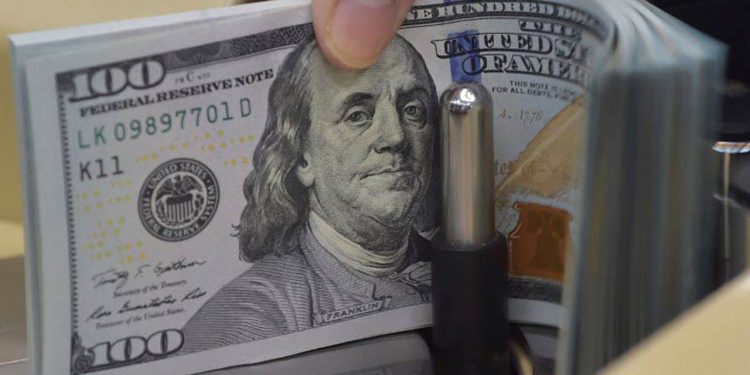Global foreign exchange reserves have reached a new milestone, hitting $12.3 trillion at the end of 2023, marking a 3.5% increase from the previous year. However, Nigeria’s share of these reserves has fallen to 0.26%, a decline from 0.36% in 2022, as reported by the International Monetary Fund (IMF).
Overview of Global FX Reserves
The IMF’s Currency Composition of Official Foreign Exchange Reserves (COFER) data reveals that while global forex reserves have grown, the U.S. dollar’s share has remained stable but historically low. By the end of 2023, the dollar accounted for $6.687 trillion or 54.22% of the total global reserves, consistent with its share in 2022 but significantly lower than its 71% share in 1999. The euro maintained its presence with an 18.55% share, while the pound sterling and Japanese yen held steady at 4.5% and 5% respectively.
Nigeria’s Forex Reserves
Nigeria’s forex reserves were recorded at $32.3 billion by the end of 2023, down from $36 billion at the end of 2022. This decline is attributed to reduced forex inflows and increased outflows, resulting in a drop to just 0.26% of the global reserves. Quarterly data shows a similar trend, with Nigeria’s share falling to 0.28% by the end of Q3 2023.
Composition of Nigeria’s FX Reserves
Nigeria’s foreign exchange reserves include a mix of Chinese Renminbi, gold, and assets tied up in currency swap deals. As of Q3 2022, $3.2 billion of Nigeria’s reserves were held in Chinese Yuan. Additionally, Nigeria holds 21.37 metric tonnes of gold, valued at approximately $1.6 billion. Reports suggest that up to 30% of Nigeria’s reserves are involved in currency swap deals, which complicates the true assessment of its liquid reserves. Moreover, a significant portion is used as collateral for loans, further reducing the usable reserves.
Shifts in Global Reserve Currency Trends
The global trend shows an increasing preference for non-traditional reserve currencies, driven by diversification and advancements in digital financial technologies. This trend is partly influenced by geopolitical factors, such as China’s efforts to internationalize the Renminbi and Russia’s move away from the U.S. dollar due to geopolitical tensions. The IMF notes that while private investors continue to favor USD-denominated assets, central banks are gradually diversifying their holdings.
Implications and Future Outlook
The decline in Nigeria’s share of global forex reserves poses challenges for the country’s economic stability, particularly in managing inflation and maintaining currency value. Efforts to diversify and stabilize the reserves are crucial for Nigeria’s financial health. Globally, the shift towards non-traditional reserve currencies indicates a move towards a more diversified and resilient financial system, potentially reducing the dominance of the U.S. dollar.
In summary, while global forex reserves have grown, Nigeria’s share has decreased, reflecting broader economic challenges and a shifting landscape in global reserve currency preferences.









